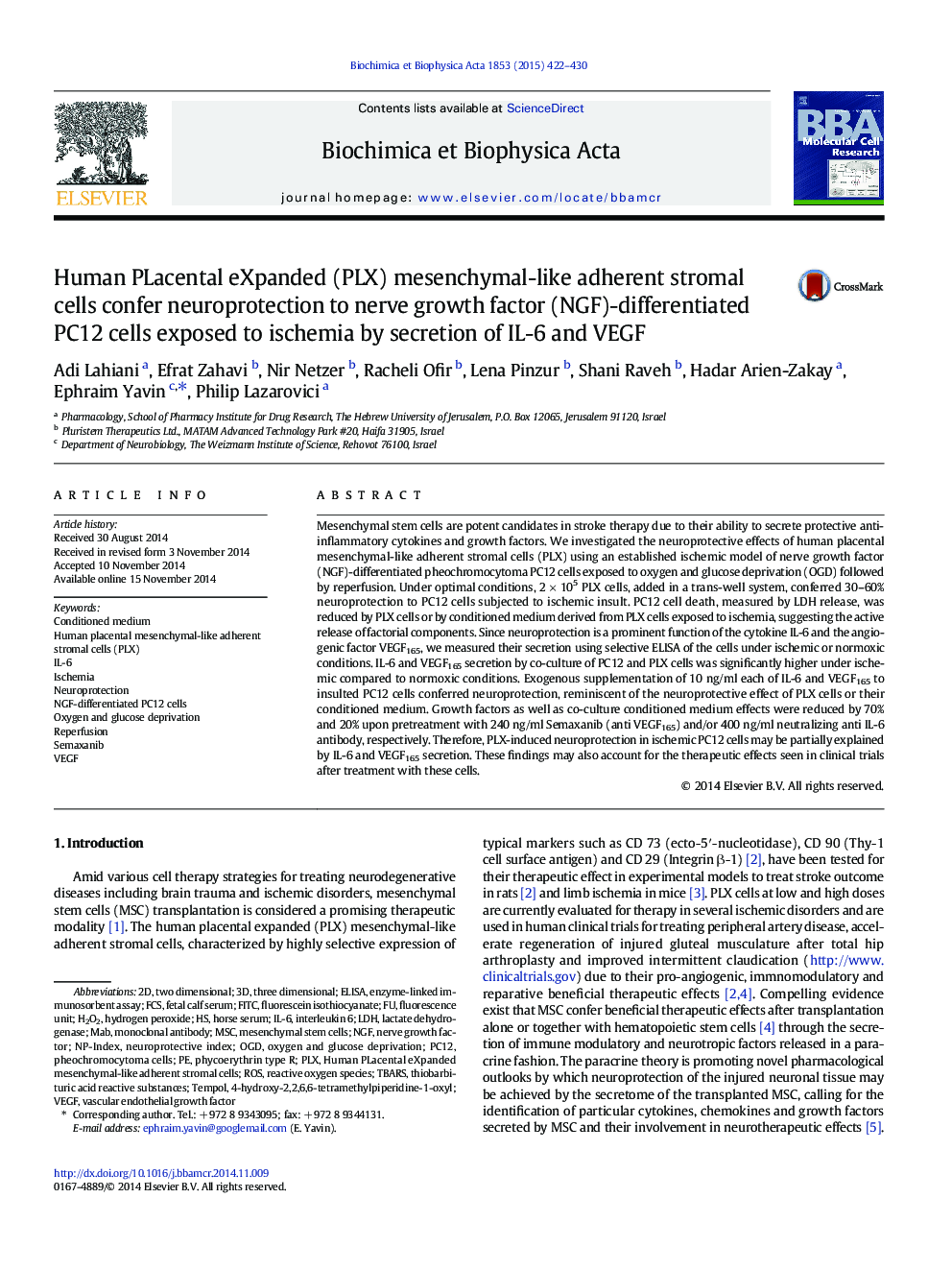| Article ID | Journal | Published Year | Pages | File Type |
|---|---|---|---|---|
| 10802052 | Biochimica et Biophysica Acta (BBA) - Molecular Cell Research | 2015 | 9 Pages |
Abstract
Mesenchymal stem cells are potent candidates in stroke therapy due to their ability to secrete protective anti-inflammatory cytokines and growth factors. We investigated the neuroprotective effects of human placental mesenchymal-like adherent stromal cells (PLX) using an established ischemic model of nerve growth factor (NGF)-differentiated pheochromocytoma PC12 cells exposed to oxygen and glucose deprivation (OGD) followed by reperfusion. Under optimal conditions, 2Â ÃÂ 105 PLX cells, added in a trans-well system, conferred 30-60% neuroprotection to PC12 cells subjected to ischemic insult. PC12 cell death, measured by LDH release, was reduced by PLX cells or by conditioned medium derived from PLX cells exposed to ischemia, suggesting the active release of factorial components. Since neuroprotection is a prominent function of the cytokine IL-6 and the angiogenic factor VEGF165, we measured their secretion using selective ELISA of the cells under ischemic or normoxic conditions. IL-6 and VEGF165 secretion by co-culture of PC12 and PLX cells was significantly higher under ischemic compared to normoxic conditions. Exogenous supplementation of 10Â ng/ml each of IL-6 and VEGF165 to insulted PC12 cells conferred neuroprotection, reminiscent of the neuroprotective effect of PLX cells or their conditioned medium. Growth factors as well as co-culture conditioned medium effects were reduced by 70% and 20% upon pretreatment with 240Â ng/ml Semaxanib (anti VEGF165) and/or 400Â ng/ml neutralizing anti IL-6 antibody, respectively. Therefore, PLX-induced neuroprotection in ischemic PC12 cells may be partially explained by IL-6 and VEGF165 secretion. These findings may also account for the therapeutic effects seen in clinical trials after treatment with these cells.
Keywords
TBARSMSCIL-6mAbSemaxanibOGDFITCPC12NGFFCS4-hydroxy-2,2,6,6-tetramethylpiperidine-1-oxylROSHydrogen peroxideMonoclonal antibodyIschemiainterleukin 6Enzyme-linked immunosorbent assayELISAtwo dimensionalReperfusionhorse serumfetal calf serumTempolMesenchymal stem cellspheochromocytoma cellsthree dimensionalConditioned mediumVascular endothelial growth factorVascular Endothelial Growth Factor (VEGF)nerve growth factorfluorescein isothiocyanatelactate dehydrogenaseLDHNeuroprotectionOxygen and glucose deprivationthiobarbituric acid reactive substancesH2O2fluorescence unitReactive oxygen species
Related Topics
Life Sciences
Biochemistry, Genetics and Molecular Biology
Biochemistry
Authors
Adi Lahiani, Efrat Zahavi, Nir Netzer, Racheli Ofir, Lena Pinzur, Shani Raveh, Hadar Arien-Zakay, Ephraim Yavin, Philip Lazarovici,
